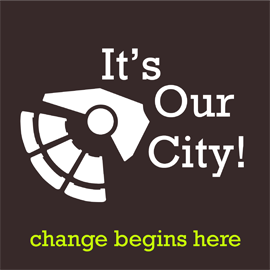They are doing the basic technical shift – a glacial inching forward, and it is a better, more basically democratic starting point we have won, but..
Here are our Public Questions submitted for today:
1) At its first meeting, the Governance Committee received a report that included a long section on the background to governance change in Sheffield. As reported at the time, this was to ensure there was a proper record for people looking back, to tell the story of the background to Sheffield’s governance change, and to recognise this as an historic moment.
However, the report and discussion did not even include one mention of the sole reason this council is changing its governance system, which was was entirely down to the work by citizens and communities organising for change, and for more democratic local governance under a modern committee system. This is no mere technicality of an omission, it is rather like saying trade unions have no role and nothing to contribute to workers rights. Or like saying tree campaigners have nothing to do with stopping street trees being felled.
For the record then, will this council confirm that the overriding and primary reason why this council is getting rid of “strong leader” governance is because of the collective action of Sheffield citizens and communities?
2) Given this apparent inability to acknowledge and embrace why governance change is happening, it is unsurprising that our council has been unable to undertake any joint working for the task, and that Sheffield citizen and community agendas have not been addressed in a significant way to date. The conversation and negotiation has been driven by the concerns and questions of politicians and officers and for completing the basic technical work required, rather than by the experiences, agendas, concerns and questions of citizens and communities.
Are there better prospects now for moving beyond the political and technocratic conversations to address the core aspirations and detailed agenda of citizens for more democratic local governance under a modern committee system? How will this happen, or will the council continue to operate only on its own terms and according to its own agenda – and despite the claim to put Sheffield citizens first?
3) There are a number of other areas where its own stated governance principles do not match the proposals being put forward today.
This question mentions just one of these areas:
4) The basic change of governance in the proposals today – from strong leader to modern committee system – is a far better starting point for democratic local governance in Sheffield despite the weaknesses, gaps and big omissions in the approach adopted by the Governance Committee, and In the content of the proposals today.
On participation….much of the mention of participation in the proposals is optional and aspirational rather than embedded and operationalised. The general focus is largely on more participation – rather than mechanisms for demonstrating better, deeper, more effective or impactful participation. A particular weakness is in stakeholder and partner involvement where even a minor baseline of establishing and integrating stakeholders in committee decision-making has not been reached.
On equalities….much of the thinking and statements on promoting equalities and mitigating inequalities remains vague and is not embedded or operationalised via actual mechanisms. It’s 2022 and we still see vague intention, no data, no clear objectives, no targets, monitoring frameworks, nor the establishment of clear, measurable outcomes.
Are these two areas (amongst many) where this council would expect to see improvements over coming months including shifts in thinking towards elements of actual power-sharing, and demonstrable progress – evidenced not only by its own assessment but by citizens, communities and stakeholders?
